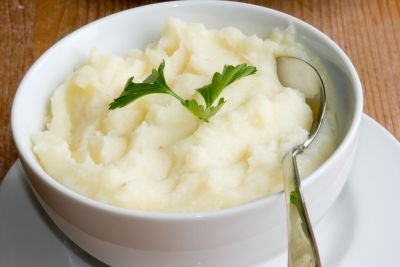Your support helps us to tell the story
From reproductive rights to climate change to Big Tech, The Independent is on the ground when the story is developing. Whether it's investigating the financials of Elon Musk's pro-Trump PAC or producing our latest documentary, 'The A Word', which shines a light on the American women fighting for reproductive rights, we know how important it is to parse out the facts from the messaging.
At such a critical moment in US history, we need reporters on the ground. Your donation allows us to keep sending journalists to speak to both sides of the story.
The Independent is trusted by Americans across the entire political spectrum. And unlike many other quality news outlets, we choose not to lock Americans out of our reporting and analysis with paywalls. We believe quality journalism should be available to everyone, paid for by those who can afford it.
Your support makes all the difference.A new study sheds light on why we reach for fatty foods like burgers and fries when feeling blue - and it may have little to do with the pleasure principle.
While exposed to sad or neutral music and images, researchers injected 12 non-obese, healthy subjects with fatty-acid solutions and saline infusions via gastric feeding tubes.
When injected with the fat solution, the subjects reported feeling less sad than those who were administered with a saline infusion.
Subjects also underwent functional magnetic resonance imaging scans so that researchers could chart their brain activity during the experiments.
The study, conducted out of the University of Leuven in Belgium, appeared in the Journal of Clinical Investigation last week.
While the association between comfort foods like macaroni and cheese and deep-fried foods - often fatty and highly caloric - and mood enhancement has been studied before, this study shows that fat can still play a role in lifting spirits even when taste, texture, smell and sight are eliminated.
"Our results may have important implications for understanding the interplay among emotions, hunger, food intake, and meal-induced sensations in health and disorders such as obesity, eating disorders, functional dyspepsia, and depression," researchers conclude.
Another study published in the journal Psychological Science in March also showed that comfort foods can fight loneliness and serve as a psychological panacea. Researchers from the University of Buffalo found that people often associate comfort foods with the people closest to them.
Meanwhile, to get the comfort without the calories, Cooking Light offers 26 recipe make-unders on classic favorites like macaroni and creamy herbed mashed potatoes.
To deliver the full-fat taste of mac and cheese, for instance, their recipe calls for sharp cheddar, bacon, and skim milk, while their mashed potatoes make use of Yukon golds, which are more flavorful and starchy and require less fat. The recipe also cuts the calories with low fat sour cream and milk.
For more recipe ideas, visit http://www.cookinglight.com/food/quick-healthy/quick-easy-comfort-food-recipes-00400000057748/page28.html
For more on the study, visit http://www.jci.org/articles/view/46380

Join our commenting forum
Join thought-provoking conversations, follow other Independent readers and see their replies
Comments